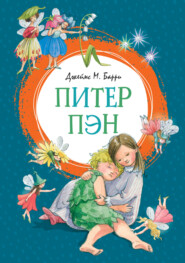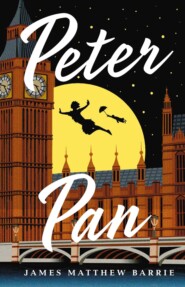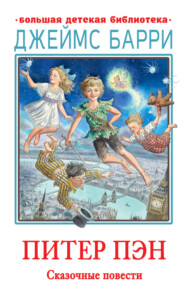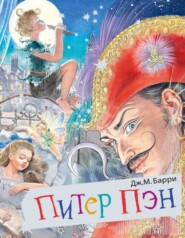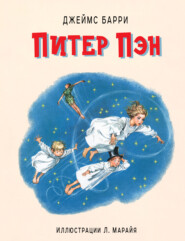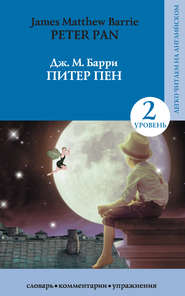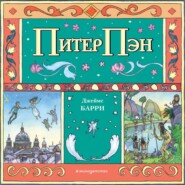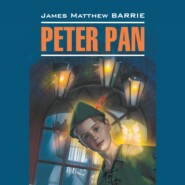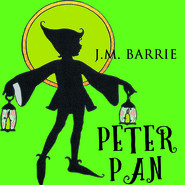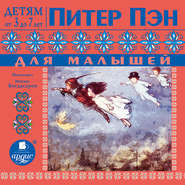По всем вопросам обращайтесь на: info@litportal.ru
(©) 2003-2024.
✖
When a Man's Single: A Tale of Literary Life
Автор
Год написания книги
2017
Настройки чтения
Размер шрифта
Высота строк
Поля
It seems a day since I was here,
A student slim and hearty,
And see, the boys around me cheer,
'The ancient-looking party!'
Rough horseplay did not pass for wit
When Rae and Mill were there;
I see a lad from Oxford sit
In Blackie's famous chair.
And Rae, of all our men the one
We most admired in quad
(I had this years ago), has gone
Completely to the bad.
In our debates the moral Mill
Had infinite address,
Alas! since then he's robbed a till,
And now he's on the press.
And Tommy Robb, the ploughman's son,
Whom all his fellows slighted,
From Rae and Mill the prize has won,
For Tommy's to be knighted.
A lanky loon is in the seat
Filled once by manse-bred Sheen,
Who did not care to mix with Peate,
A bleacher who had been.
But watch the whirligig of time,
Brave Peate became a preacher,
His name is known in every clime,
And Sheen is now the bleacher.
McMillan, who the medals carried,
Is now a judge, 'tis said,
And curly-headed Smith is married,
And Williamson is dead.
Old Phil and I who shared our books
Now very seldom meet,
And when we do, with frowning looks
We pass by in the street.
The college rings with student slang
As in the days of yore,
The self-same notice boards still hang
Upon the class-room door:
An essay (I expected that)
On Burns this week, or Locke,
'A theory of creation' at
Precisely seven o'clock.
There's none here now who knows my name,
My place is far away,
And yet the college is the same,
Not older by a day.
But curious looks are cast at me,
Ah! herein lies the change,
All else is as it used to be,
And I alone am strange!
'Now, you could never guess,' Simms said to Rob, 'what profession our singer belongs to.'
'He looks more like a writer than an artist,' said Rob, who had felt the song more than the singer did.
'Well, he is more an artist than a writer, though, strictly speaking, he is neither. To that man is the honour of having created a profession. He furnishes rooms for interviews.'
'I don't quite understand,' said Rob.
'It is in this way,' Simms explained. 'Interviews in this country are of recent growth, but it has been already discovered that what the public want to read is not so much a celebrity's views on any topic as a description of his library, his dressing-gown, or his gifts from the king of Kashabahoo. Many of the eminent ones, however, are very uninteresting in private life, and have no curiosities to show their interviewer worth writing about, so your countryman has started a profession of providing curiosities suitable for celebrities at from five pounds upwards, each article, of course, having a guaranteed story attached to it. The editor, you observe, intimates his wish to include the distinguished person in his galaxy of "Men of the Moment," and then the notability drops a line to our friend saying that he wants a few of his rooms arranged for an interview. Your countryman sends the goods, arranges them effectively, and puts the celebrity up to the reminiscences he is to tell about each.'
'I suppose,' said Rob, with a light in his eye, 'that the interviewer is as much taken in by this as – well, say, as I have been by you?'
'To the same extent,' admitted Simms solemnly. 'Of course he is not aware that before the interview appears the interesting relics have all been packed up and taken back to our Scottish friend's show-rooms.'
The distinguished novelist in the chair told Rob (without having been introduced to him) that his books were beggaring his publishers.
'What I make my living off,' he said, 'is the penny dreadful, complete in one number. I manufacture two a week without hindrance to other employment, and could make it three if I did not have a weak wrist.'
It was thus that every one talked to Rob, who, because he took a joke without changing countenance, was considered obtuse. He congratulated one man on his article on chaffinches in the Evening Firebrand, and the writer said he had discovered, since the paper appeared, that the birds he described were really linnets. Another man was introduced to Rob as the writer of In Memoriam.
'No,' said the gentleman himself, on seeing Rob start, 'my name is not Tennyson. It is, indeed, Murphy. Tennyson and the other fellows, who are ambitious of literary fame, pay me so much a page for poems to which they put their names.'
At this point the applause became so deafening that Simms and Rob, who had been on their way to another room, turned back. An aged man, with a magnificent head, was on his feet to describe his first meeting with Carlyle.
'Who is it?' asked Rob, and Simms mentioned the name of a celebrity only a little less renowned than Carlyle himself. To Rob it had been one of the glories of London that in the streets he sometimes came suddenly upon world-renowned men, but he now looked upon this eminent scientist for the first time. The celebrity was there as a visitor, for the Wigwam cannot boast quite such famous members as he.
The septuagenarian began his story well. He described the approach to Craigenputtock on a warm summer afternoon, and the emotions that laid hold of him as, from a distance, he observed the sage seated astride a low dyke, flinging stones into the duck-pond. The pedestrian announced his name and the pleasure with which he at last stood face to face with the greatest writer of the day; and then the genial author of Sartor Resartus, annoyed at being disturbed, jumped off the dyke and chased his visitor round and round the duck-pond. The celebrity had got thus far in his reminiscence when he suddenly stammered, bit his lip as if enraged at something, and then trembled so much that he had to be led back to his seat.
'He must be ill,' whispered Rob to Simms.
'It isn't that,' answered Simms; 'I fancy he must have caught sight of Wingfield.'
Rob's companion pointed to a melancholy-looking man in a seedy coat, who was sitting alone glaring at the celebrity.
'Who is he?' asked Rob.
'He is the great man's literary executor,' Simms replied: 'come along with me and hearken to his sad tale; he is never loth to tell it.'
They crossed over to Wingfield, who received them dejectedly.
'This is not a matter I care to speak of, Mr. Angus,' said the sorrowful man, who spoke of it, however, as frequently as he could find a listener. 'It is now seven years since that gentleman' – pointing angrily at the celebrity, who glared in reply – 'appointed me his literary executor. At the time I thought it a splendid appointment, and by the end of two years I had all his remains carefully edited and his biography ready for the Press. He was an invalid at that time, supposed to be breaking up fast; yet look at him now.'
A student slim and hearty,
And see, the boys around me cheer,
'The ancient-looking party!'
Rough horseplay did not pass for wit
When Rae and Mill were there;
I see a lad from Oxford sit
In Blackie's famous chair.
And Rae, of all our men the one
We most admired in quad
(I had this years ago), has gone
Completely to the bad.
In our debates the moral Mill
Had infinite address,
Alas! since then he's robbed a till,
And now he's on the press.
And Tommy Robb, the ploughman's son,
Whom all his fellows slighted,
From Rae and Mill the prize has won,
For Tommy's to be knighted.
A lanky loon is in the seat
Filled once by manse-bred Sheen,
Who did not care to mix with Peate,
A bleacher who had been.
But watch the whirligig of time,
Brave Peate became a preacher,
His name is known in every clime,
And Sheen is now the bleacher.
McMillan, who the medals carried,
Is now a judge, 'tis said,
And curly-headed Smith is married,
And Williamson is dead.
Old Phil and I who shared our books
Now very seldom meet,
And when we do, with frowning looks
We pass by in the street.
The college rings with student slang
As in the days of yore,
The self-same notice boards still hang
Upon the class-room door:
An essay (I expected that)
On Burns this week, or Locke,
'A theory of creation' at
Precisely seven o'clock.
There's none here now who knows my name,
My place is far away,
And yet the college is the same,
Not older by a day.
But curious looks are cast at me,
Ah! herein lies the change,
All else is as it used to be,
And I alone am strange!
'Now, you could never guess,' Simms said to Rob, 'what profession our singer belongs to.'
'He looks more like a writer than an artist,' said Rob, who had felt the song more than the singer did.
'Well, he is more an artist than a writer, though, strictly speaking, he is neither. To that man is the honour of having created a profession. He furnishes rooms for interviews.'
'I don't quite understand,' said Rob.
'It is in this way,' Simms explained. 'Interviews in this country are of recent growth, but it has been already discovered that what the public want to read is not so much a celebrity's views on any topic as a description of his library, his dressing-gown, or his gifts from the king of Kashabahoo. Many of the eminent ones, however, are very uninteresting in private life, and have no curiosities to show their interviewer worth writing about, so your countryman has started a profession of providing curiosities suitable for celebrities at from five pounds upwards, each article, of course, having a guaranteed story attached to it. The editor, you observe, intimates his wish to include the distinguished person in his galaxy of "Men of the Moment," and then the notability drops a line to our friend saying that he wants a few of his rooms arranged for an interview. Your countryman sends the goods, arranges them effectively, and puts the celebrity up to the reminiscences he is to tell about each.'
'I suppose,' said Rob, with a light in his eye, 'that the interviewer is as much taken in by this as – well, say, as I have been by you?'
'To the same extent,' admitted Simms solemnly. 'Of course he is not aware that before the interview appears the interesting relics have all been packed up and taken back to our Scottish friend's show-rooms.'
The distinguished novelist in the chair told Rob (without having been introduced to him) that his books were beggaring his publishers.
'What I make my living off,' he said, 'is the penny dreadful, complete in one number. I manufacture two a week without hindrance to other employment, and could make it three if I did not have a weak wrist.'
It was thus that every one talked to Rob, who, because he took a joke without changing countenance, was considered obtuse. He congratulated one man on his article on chaffinches in the Evening Firebrand, and the writer said he had discovered, since the paper appeared, that the birds he described were really linnets. Another man was introduced to Rob as the writer of In Memoriam.
'No,' said the gentleman himself, on seeing Rob start, 'my name is not Tennyson. It is, indeed, Murphy. Tennyson and the other fellows, who are ambitious of literary fame, pay me so much a page for poems to which they put their names.'
At this point the applause became so deafening that Simms and Rob, who had been on their way to another room, turned back. An aged man, with a magnificent head, was on his feet to describe his first meeting with Carlyle.
'Who is it?' asked Rob, and Simms mentioned the name of a celebrity only a little less renowned than Carlyle himself. To Rob it had been one of the glories of London that in the streets he sometimes came suddenly upon world-renowned men, but he now looked upon this eminent scientist for the first time. The celebrity was there as a visitor, for the Wigwam cannot boast quite such famous members as he.
The septuagenarian began his story well. He described the approach to Craigenputtock on a warm summer afternoon, and the emotions that laid hold of him as, from a distance, he observed the sage seated astride a low dyke, flinging stones into the duck-pond. The pedestrian announced his name and the pleasure with which he at last stood face to face with the greatest writer of the day; and then the genial author of Sartor Resartus, annoyed at being disturbed, jumped off the dyke and chased his visitor round and round the duck-pond. The celebrity had got thus far in his reminiscence when he suddenly stammered, bit his lip as if enraged at something, and then trembled so much that he had to be led back to his seat.
'He must be ill,' whispered Rob to Simms.
'It isn't that,' answered Simms; 'I fancy he must have caught sight of Wingfield.'
Rob's companion pointed to a melancholy-looking man in a seedy coat, who was sitting alone glaring at the celebrity.
'Who is he?' asked Rob.
'He is the great man's literary executor,' Simms replied: 'come along with me and hearken to his sad tale; he is never loth to tell it.'
They crossed over to Wingfield, who received them dejectedly.
'This is not a matter I care to speak of, Mr. Angus,' said the sorrowful man, who spoke of it, however, as frequently as he could find a listener. 'It is now seven years since that gentleman' – pointing angrily at the celebrity, who glared in reply – 'appointed me his literary executor. At the time I thought it a splendid appointment, and by the end of two years I had all his remains carefully edited and his biography ready for the Press. He was an invalid at that time, supposed to be breaking up fast; yet look at him now.'






